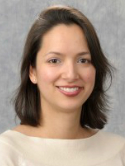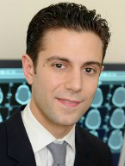| Abstract: |
BACKGROUND: The purpose of this study was to investigate the utility and clinical impact of second-opinion interpretations of outside neuroimaging studies by oncologic neuroradiologists at a National Cancer Institute–designated cancer center. METHODS: We performed a retrospective analysis of initial outside and second-opinion radiology reports from 300 computed tomography and magnetic resonance imaging studies and identified cases with discrepancies between the two reports. An adult neuro-oncologist, pediatric neuro-oncologist, and head and neck surgeon reviewed each pair of discrepant reports based on their area of expertise, patient age, and the type of study performed. The clinicians were blinded to the origin of each report and recorded whether the differences in the reports would have led to a change in patient management and/or disease staging. Histopathologic analysis, clinical assessment, and/or minimum 3-month imaging follow-up served as the reference standards to establish which of the 2 reports was correct. RESULTS: Among the 283 cases that met our study criteria, there were 55 neuroimaging studies with disagreements (19%) between the initial outside report and second-opinion interpretation. Patient management and/or disease stage would have been altered in 42 of 283 cases (15%) based on report differences as determined by the 2 neuro-oncologists and the surgeon participating in the study. Sufficient follow-up was available in 35 of 42 cases (83%). The second-opinion interpretation was correct 100% of the time (35/35). CONCLUSION: Second-opinion interpretations of neuroimaging studies by subspecialized oncologic neuroradiologists provide added value by reducing error and optimizing the care of cancer patients. Cancer 2016. © 2016 American Cancer Society. Cancer 2016;122:2708–2714. © 2016 American Cancer Society. © 2016 American Cancer Society |












